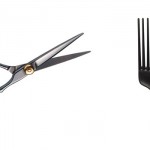
You’ve probably heard that it’s possible to develop a new habit when it’s consistently practiced for at least a period of 30 days. Most of these are often related to health goals, which tend to be difficult to maintain before you’re halfway through. But what if there were tricks and tips to help you nail that new habit easily? Julianna Asare-Amankwah, Art Therapist & Counselor, Evolve Counsel, provides some expert advice on this.
For any new habit, “once you pass the 30 day repetition mark, it’s smooth sailing,” confirms Asare-Amankwah. Below are her three tips:
The Loci Method
“This is my husband’s personal favorite. It’s really fun and easy and involves the use of the imagination. Loci in Latin means places; therefore in this method you visualize or illustrate the new information and place it in a familiar environment or place,” she explains.
How do you apply this? Asare-Amankwah provides an example: “You might imagine items on your grocery list spread out through your house so while you are at the shop you would take an imaginary walk through your house, “see” the items and remember to buy them.”
“The added twist I tell my clients if the new habit is behavioral, is to place said action in a favorite part of their home and cannot enter said space until the action is completed,” she adds. “For instance, one may not enter their living room/den if they haven’t walked 5 miles that day.”
Accountability
This should probably be one of the easiest of the tips, as you can convince partners, family members or close friends to help keep you on track.
“Another reason why many people fail to develop better habits is the lack of accountability. Simply ask someone to check to make sure you have achieved your goal or you could also start a vlog; a video blog and post it on youtube or any social media platform to encourage yourself to keep it up,” clarifies Asare-Amankwah.
Focus
This final tip is often underestimated but makes a huge difference in the process as you work to achieve your goal. Distractions can only keep you off track.
“You need to focus appropriately,” cautions Asare-Amankwah. “The habit is usually not the final destination but a means to the end. Thus, it makes no sense to focus on the method, keep your eye on the prize and you will find that completing said task becomes much easier.”
She adds:
“As an example, if you want to lose weight but you hate exercise; don’t focus on how much you dislike working out. Focus rather on the end result; imagine how fabulous you will look and feel after. Let that motivate you. If imagining the result is difficult, create a mood or vision board, fill it with images of the end goal and use that as your focus and watch the pounds melt away. “







